Friends of the ISM
The Friends of the Institute are a group of talented professionals appointed by the director, who work in the various disciplines represented by the faculty and who serve to promote and advise on the programs, student recruitment, and activities of the Institute throughout the world.
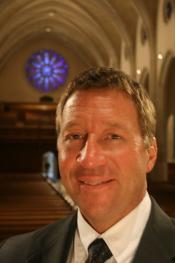 Dale Adelmann (M.M. ’86) is Canon for Music at the Cathedral of St. Philip, Atlanta, and serves on the boards of the Anglican Musicians Foundation and the Ann Stookey Fund for New Music. He has conducted choral festivals across the United States, most often under the auspices of the Royal School of Church Music in America; presented for national conventions of the American Guild of Organist, most recently in Nashville (2012); and conducted the Sewanee Church Music Conference (2011). He is a past president of the Association of Anglican Musicians (AAM), co-chaired its 2009 national conference in Los Angeles, and has served both as editor and consulting editor of the Journal of AAM. Prior music director posts include All Saints’, Beverly Hills; St. Paul’s Cathedral, Buffalo; and, during his final two seasons in Western New York, the Buffalo Philharmonic Chorus and its Chamber singers. His choral arrangements are published by Paraclete Press and Oregon Catholic Press. His choirs have recorded for Gothic Records and Pro Organo, and have toured extensively to sing choral services as choir-in-residence in the cathedrals of England.
Dale Adelmann (M.M. ’86) is Canon for Music at the Cathedral of St. Philip, Atlanta, and serves on the boards of the Anglican Musicians Foundation and the Ann Stookey Fund for New Music. He has conducted choral festivals across the United States, most often under the auspices of the Royal School of Church Music in America; presented for national conventions of the American Guild of Organist, most recently in Nashville (2012); and conducted the Sewanee Church Music Conference (2011). He is a past president of the Association of Anglican Musicians (AAM), co-chaired its 2009 national conference in Los Angeles, and has served both as editor and consulting editor of the Journal of AAM. Prior music director posts include All Saints’, Beverly Hills; St. Paul’s Cathedral, Buffalo; and, during his final two seasons in Western New York, the Buffalo Philharmonic Chorus and its Chamber singers. His choral arrangements are published by Paraclete Press and Oregon Catholic Press. His choirs have recorded for Gothic Records and Pro Organo, and have toured extensively to sing choral services as choir-in-residence in the cathedrals of England.
Following studies at the University of Michigan, Albert-Ludwigs-Universität (Freiburg, Germany), and the Yale Institute of Sacred Music, he was a Fulbright scholar at the University of Cambridge, England, where his Ph.D. dissertation and subsequent book uncovered the intimate connection between the nineteenth-century revival of Gothic architecture and the revival of Anglican choral worship. While at Cambridge, he also became the first North American to sing in the Choir of St. John’s College; and he served as musical director of the Gentlemen of St. John’s, conducting concert tours of Sweden, Northern Ireland, Wales, England, and the USA. Since 2007 Dale has enjoyed an annual retreat to write an icon in the Russian liturgical tradition.
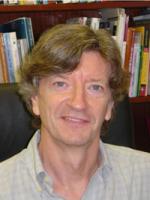
Bobby C. Alexander, PhD, conducts research and teaches in the area of sociology and sociology of religion at the University of Texas at Dallas, where he is associate professor of sociology in the School of Economic, Political, and Policy Sciences. Currently he works on religion of the newest immigrants in U.S. society; his main project in this area is the contribution of their religion to change in gender roles for migrant Mexican Pentecostal women. He also is working on a collaborative project on asylum and the performance of credibility. His research has been funded by the Rockefeller Foundation, CrossCurrents: Association for Religion and Intellectual Life, and the American Academy of Religion. Prof. Alexander took his PhD in religious studies at Columbia University. He holds a PhD in systematic theology awarded by Union Theological Seminary. Columbia also awarded him the MPhil, and Union Seminary the MDiv.
Prof. Alexander has made several gifts to the Yale community. Along with Yale ISM faculty, Alexander established the Richard Paul DeLong Prize in church music, which goes to graduates of ISM pursuing careers as practicing church musicians. He established the DeLong Papers at the Irving S. Gilmore Music Library at Yale; the collection contains Mr. DeLong’s manuscripts of sacred music and related papers. The library also received Richard DeLong’s collection of sacred music recordings and books on music. To be donated to the Gilmore Library are recordings of Mr. DeLong’s church choirs; Richard DeLong was a church choir director and organist as well as composer of music for the church. Prof. Alexander donated the DeLong Hymnal Collection to the Yale Divinity Library. Following his earlier gift to ISM of Mr. DeLong’s harpsichord built by Richard Kingston, he recently donated Mr. DeLong’s Bösendorfer piano.
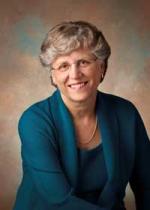
Dorothy C. Bass is the director of the Valparaiso Project on the Education and Formation of People in Faith (www.practicingourfaith.org), a Lilly Endowment project that explores the importance of practices in Christian life and considers how greater attention to practices might contribute to theology and theological education. In addition to publishing several scholarly volumes on practices, edited or coedited by Bass, the Valparaiso Project has created several books that are widely used in congregations and other ministry settings, and has worked directly with some of these to strengthen communities of practice. A graduate of Wellesley College, Union Theological Seminary in New York City, and Brown University, Prof. Bass has taught at several colleges and theological schools. She is a member of the Evangelical Lutheran Church in America.
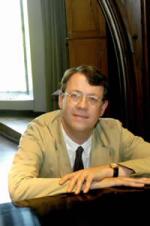
Philip V. Bohlman is the Mary Werkman Distinguished Service Professor of the Humanities and Music at the University of Chicago, where he is also an adjunct faculty member of the Divinity School, and Honorarprofessor at the Hochschule für Musik und Theater Hannover. A pianist, he is the Artistic Director of the University of Chicago ensemble-in-residence, the New Budapest Orpheum Society. Phil was raised in rural Wisconsin, where his earliest studies were as a church musician, before he took his university studies in piano and ethnomusicology at the universities of Wisconsin and Illinois. His research and teaching include a wide range of subjects formed at the intersection of music and religion, from Jewish music to the music of American religious communities to ethnographic studies of pilgrimage and myth in South Asia. He has held numerous guest professorships, among them those at Berkeley, Bologna, Cornell, Freiburg im Breisgau, Humboldt University of Berlin, Newcastle upon Tyne, Vienna, and most recently at the Yale Institute of Sacred Music. Among his many publications are The Study of Folk Music in the Modern World (1988), The World Centre for Jewish Music in Palestine 1936-1940 (1992), World Music: A Very Short Introduction (2002), Jüdische Volksmusik: Eine mitteleuropäische Geistesgeschichte (2005), and Music in American Religious Experience (2006; coedited with ISM alumna, Maria Chow, and Edith Blumhofer). Jewish Music and Modernity appears this fall in “AMS Studies in Music,” and Redemption and Revival: Sacred Music in the Making of European Modernity will appear in 2009. He and the New Budapest Orpheum Society record for Cedille Records. A winner of the Edward Dent Medal of the Royal Music Association and the Berlin Prize of the American Academy in Berlin, Philip Bohlman is a Corresponding Fellow of the British Academy, which awarded him the Derek Allen Prize for Outstanding Achievement in Musicology in 2007. He is Past-President of the Society for Ethnomusicology.
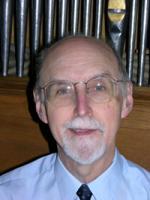
Quentin Faulkner is Larson Professor Emeritus of Organ and Music Theory/History at the University of Nebraska-Lincoln. He has presented numerous organ recitals throughout the U.S. and in Europe (in particular, on historically significant organs), and has also served for three semesters as visiting professor at the Evangelische Hochschule für Kirchenmusik in Halle, Germany. His research into aspects of J.S. Bach’s keyboard technique has produced the book, J.S. Bach’s Keyboard Technique: A Historical Introduction (Concordia, 1984) and the edition Basic Bach (Wayne Leupold Editions, 1997), a volume containing the Orgelbüchlein and three free works, supplied with fingerings and information on performance practice. He will introduce his latest book, The Registration of J.S. Bach’s Organ Works (Wayne Leupold Editions, 2008) at the 2008 AGO National Convention in the Twin Cities, and he is currently completing a translation of Jacob Adlung’s Musica mechanica organœdi (1768), the most comprehensive source on the organ in central Germany during Bach’s lifetime. He has also authored a book, Wiser than Despair (Greenwood Press, 1996) on the history of ideas in church music.
Dr. Faulkner and his wife, Dr. Mary Murrell Faulkner, retired in 2006, and now live in Amherst, Massachusetts. They serve as parish musicians at St. James Episcopal Church, Greenfield, Massachusetts.
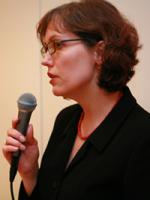
Ena Heller is the Bruce A. Beal director of the Cornell Fine Arts Museum. Before coming to Rollins in the fall of 2012 she was the founding Executive Director of the Museum of Biblical Art (MOBIA) in New York City, and held positions at the Metropolitan Museum of Art and the Museum of Modern Art. Her teaching experience includes appointments at the College of the Holy Cross (Worcester, MA) and Manhattanville College (Purchase, NY). Her publications include the edited volumes Perspectives on Medieval Art: Learning through Looking (2009) and Reluctant Partners: Art and Religion in Dialogue (2004) and the exhibition catalogs Icons or Portraits? Images of Jesus and Mary from the Collection of Michael Hall (2001) and Tobi Kahn: Sacred Spaces of the 21st Century (2009). She contributed essays to the collective volumes From the Margins I & II: Women of the Hebrew Bible and their Afterlives/Women of the New Testament and their Afterlives (both in 2009); Women’s Space: Patronage, Place, and Gender in the Medieval Church (2005); and the Cambridge History of Religious Architecture of the World (forthcoming 2014). Dr. Heller holds a Ph.D. in art history from the Institute of Fine Arts, New York University and is a graduate of the Getty Museum Leadership Institute. She has presented papers at the conferences of the Society of Architectural Historians, College Art Association, and the Council of American Jewish Museums, at the Institute of Fine Arts, and at numerous museums and universities throughout the country, and is the recipient of the 2010 Religion and Arts Award from the American Academy of Religion.
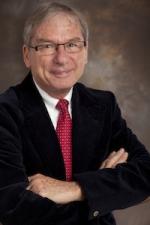
Don E. Saliers recently retired as William R. Cannon Distinguished Professor of Theology and Worship and director of the master of sacred music program at Emory University. After attending Ohio Wesleyan University, he earned his B.D. degree and a Ph. D. from Yale University. Dr. Saliers is currently writing on liturgy and theological aesthetics. Previous publications include: Filled with Light, with Jonathan Hillyer (2008), Music and Theology (2007), A Song to Sing, a Life to Live (2004), coauthored with daughter Emily Saliers; The Conversation Matters (1999), coauthor; Human Disability and the Service of God (1998), coauthor; Worship Come To Its Senses (1996); Worship As Theology (1994); Christian Spirituality III (1989), coeditor with critical introduction; Handbook For the Christian Year (1986, 1992); K. Barth’s Prayer (1985), coeditor with critical introduction; Worship and Spirituality (1984); and Soul in Paraphrase: Prayer and Religious Affections (1980, 1991).
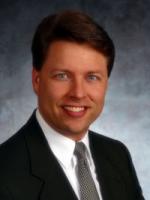 John D. Witvliet is director of the Calvin Institute of Christian Worship and serves as professor of music and worship at Calvin College and Calvin Theological Seminary, respectively. He also teaches in the religion department at Calvin College. His responsibilities include oversight of the Institute’s practical and scholarly programs, including the annual Calvin Symposium on Worship and the Worship Renewal Grants Program, funded by Lilly Endowment Inc. His areas of interest include the history of Christian worship, worship practices in various denominations, biblical and systematic theology of worship, the role of music and the arts in worship, and consulting with churches on worship renewal.
John D. Witvliet is director of the Calvin Institute of Christian Worship and serves as professor of music and worship at Calvin College and Calvin Theological Seminary, respectively. He also teaches in the religion department at Calvin College. His responsibilities include oversight of the Institute’s practical and scholarly programs, including the annual Calvin Symposium on Worship and the Worship Renewal Grants Program, funded by Lilly Endowment Inc. His areas of interest include the history of Christian worship, worship practices in various denominations, biblical and systematic theology of worship, the role of music and the arts in worship, and consulting with churches on worship renewal.
A graduate of Calvin College, Dr. Witvliet holds graduate degrees in theology from Calvin Theology Seminary, in choral music from the University of Illinois, and the Ph.D. in liturgical studies and theology from the University of Notre Dame.
He is the author of The Biblical Psalms in Christian Worship: A Brief Introduction and Guide to Resources (Eerdmans, 2007), co-editor of The Worship Sourcebook (Faith Alive & Baker Books, 2004), Worship Seeking Understanding: Windows into Christian Practice (Baker Academic, 2003), co-editor of Worship in Medieval and Early Modern Europe: Change and Continuity in Religious Practice (University of Notre Dame Press, 2004), and editor of A Child Shall Lead: Children in Worship (Choristers Guild, 1999). He serves as editor for two series of books – the Calvin Institute of Christian Worship Liturgical Studies Series (Eerdmans) and Vital Worship, Healthy Congregations (Alban Institute)-as well as co-editor, with Pearl Shangkuan, of the Calvin Institute of Christian Worship Music Series (GIA).
Dr. Witvliet has served for 10 years as a member of the board of directors for The Choristers Guild, including a term as president. He has also served as music director for churches in Michigan and Indiana, research associate at Notre Dame’s Center for Pastoral Liturgy, and guest lecturer at worship conferences in several states and provinces.
In addition, his articles have appeared in The American Organist, Jahrbuch für Liturgik und Hymnologie, The Choral Journal, Studia Liturgica, Worship, Reformed Worship, Reformed Liturgy and Music, Congregations, Assembly, The Hymn, The Chorister, and Books and Culture. He has also contributed to several dictionaries, including Religion in Geschichte und Gegenwart, Westminster Dictionary of Liturgy and Music, Worship Music: A Concise Dictionary, and The Complete Library of Christian Worship.
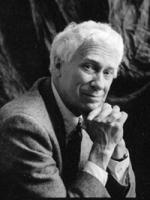 Nicholas Wolterstorff is Noah Porter Professor Emeritus of Philosophical Theology at Yale University, and Senior Fellow of the Institute for Advanced Studies in Culture, University of Virginia.
Nicholas Wolterstorff is Noah Porter Professor Emeritus of Philosophical Theology at Yale University, and Senior Fellow of the Institute for Advanced Studies in Culture, University of Virginia.
He received his BA from Calvin College in 1953 and his PhD in philosophy from Harvard University in 1956. After teaching philosophy for two years at Yale, and then for thirty years at his alma mater, Calvin College, he returned to Yale in 1989 as the Noah Porter Professor in Philosophical Theology.
After concentrating on metaphysics at the beginning of his career (On Universals), he spent a good many years working primarily on aesthetics and philosophy of art (Works and Worlds of Art, and Art in Action). In more recent years, he concentrated on epistemology (John Locke and the Ethics of Belief, Thomas Reid and the Story of Epistemology), on philosophy of religion (Divine Discourse, and, with Alvin Plantinga, Faith and Rationality), and political philosophy (Until Justice and Peace Embrace, and, with Robert Audi, Religion in the Public Square). He has recently published Justice in Love, Understanding Liberal Democracy, The Mighty and the Almighty, and Justice: Rights and Wrongs.
In the fall of 1993 Prof. Wolterstorff gave the Wilde Lectures at Oxford University (published as Divine Discourse), and in the spring of 1995 he gave the Gifford Lectures at St. Andrews University (part of which is now published as Thomas Reid and the Story of Epistemology). He has been president of the American Philosophical Association (Central Division), and of the Society of Christian Philosophers; and is a fellow of the American Academy of Arts and Sciences.